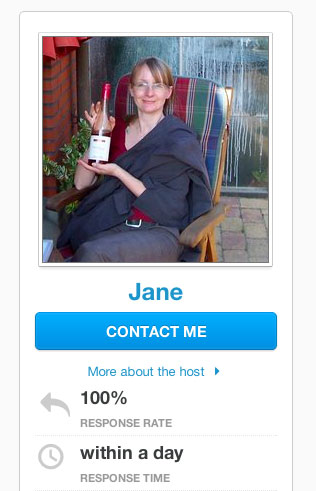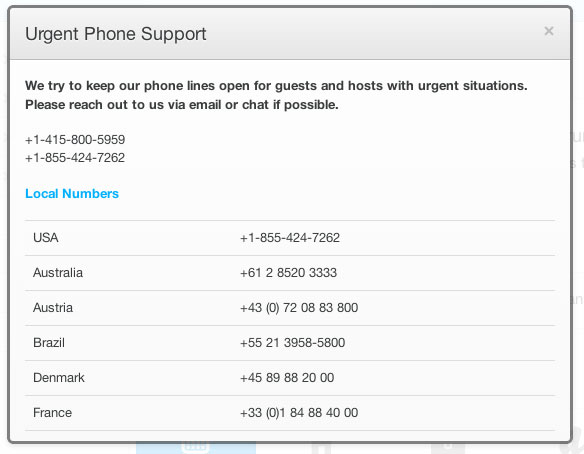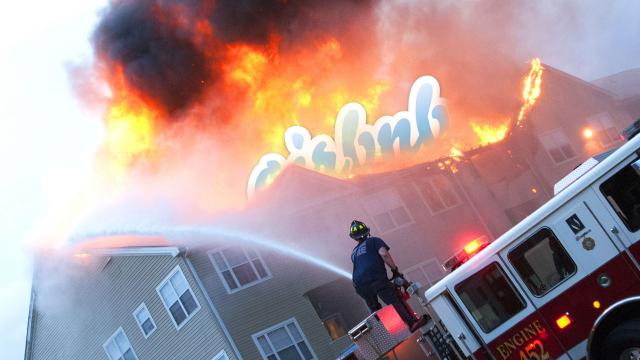Dear Lifehacker, With Airbnb becoming illegal in some cities, and horror stories of bad hosts, should I even consider using the site for holiday rentals? If so, what should I do if I find myself in an extreme situation and need help? Sincerely, Scaredbnb
Picture: Fort George G. Meade Public Affairs Office/Flickr
Dear Scaredbnb,
Welcome to the internet. You’ll naturally find more complaints and horror stories than you will happy endings. Of course, bad things do happen on Airbnb — I’ve been through one of those extreme situations myself — but that doesn’t mean you shouldn’t use the service.
Understand the Problem
First, we need to understand the situation in New York (which is the current source of much of the angst) to get to the bottom of why rentals on Airbnb make some people uncomfortable nowadays. The city of New York has laws and regulations for hotels to protect guests from issues such as poor-quality conditions, theft and discrimination. Sites like Airbnb provided a way for large buildings and individuals alike to rent out short-term apartments as an alternative to hotels.
This hurt the hotel business, because they were undercut by cheaper short-term holiday rentals that didn’t have to pay the city for the right to operate. More importantly, for the individual renter, a lack of regulation means a higher amount of inconsistency and risk. You might rent an apartment with a vermin problem or that doesn’t come with the promised amenities. You may even rent from someone who doesn’t own the apartment and isn’t supposed to rent out rooms. You can get stuck in a place you want to leave or get forced out due to violations. When you rent from an unregulated person, you willingly take these sorts of risks.
New York City didn’t specifically make short-term rentals illegal recently, but it has had an illegal hotels law on the books since 2010 and simply enforced it in a recent case against an Airbnb renter. This ruling complicates Airbnb listings in New York significantly, but the risks of renting from a person on the internet — however small — still exist regardless of your location.
Should You Rent on Airbnb?

Whether or not you should rent from a person listing their place on Airbnb depends on a few (mostly personal) factors. Despite the situation in New York, most people understand the difference between renting from a hotel and renting from some dude on the web. While Airbnb verifies information from renters and guests alike, it obviously cannot run thorough checks on all its users to ensure no potentially bad people will use the service. As a result, you just have to approach the situation with common sense and rent diligently. Before you book on Airbnb, you should consider the following:
- Know your renter: Take a look at the renter’s history. Airbnb users live by reviews, so read up on your potential renter. If any reviews bring up a red flag for you, contact the renter to ask for more information about the problem and what will be done if a similar problem occurs for you.
- Talk before you book: While you can instantly book a handful of Airbnb listings you must contact the host first to discuss and confirm a booking in more cases. This allows you the opportunity to explain why you need to rent and learn a little bit more about the host. Look at this as an opportunity rather than an inconvenience.
- Consider the price: Some rentals come cheaper than others, and some come a little too cheap. While you won’t know fair pricing for rooms and full apartments in a city you haven’t visited, common sense can guide you. For example, if you find a very nice apartment listed for $50 per night among similar listings for $100 per night, you ought to question why this one listing costs so much less. In my personal experience, and from the experiences I know of others, the law of “too good to be true” should apply to Airbnb listings as well.
- Contact previous guests: If you have any significant concerns, find previous guests to talk to. Airbnb connects through Facebook so you can easily discover if any of your friends know the renter (or know someone who does). I’ve even come across listings my Facebook friends have booked themselves. You can also ask the renter for references if you want additional assurance.
For the most part, a little research and conversation will do the trick. When I encountered a problematic rental, I saw a few small red flags and ignored them. I might have avoided the issue had I paid closer attention. While extreme situations sometimes happen regardless of your efforts, you can minimise your risk with good preparation.
What to Do If You Encounter an Extreme Situation

Although you may hear about extreme situations on Airbnb from time to time, if you look at all the positive reviews of renters and guests, you’ll see how often things go well. That said, problems occur from time to time and it helps to know how to handle them so you don’t freak out.
I prefer homes over hotels, so I use Airbnb often when I travel. During one overseas trip, I rented from a woman who violated the terms of her lease by renting to me. Her landlord flew in from Barcelona, woke me up in the morning to ask me to leave, and proceeded to evict the woman who found me through Airbnb. I did not yet have a functioning mobile phone, making it a bit more complicated to find a new place to stay. Through the aid of Wi-Fi, I was able to get in touch with Airbnb over Skype and solve the problem pretty easily. I also spoke with Airbnb afterwards to learn more about how it suggests guests handle extreme situations. If you find yourself in a dilemma, here’s what you do:
- Ask the renter/landlord for time to resolve the issue before leaving the apartment. If asked to leave, most landlords will offer you a little time to get your affairs in order rather than throw you out on the street. You didn’t knowingly violate the lease, so they will probably help you if you are polite. If they force you out, get documentation of the issue before leaving. They cannot physically remove you and will have to call the police if you refuse to go. While not ideal, the police can provide you with evidence of your forced removal. Make your way to a cafe with Wi-Fi (or a computer, if you don’t have one) immediately after you leave. If you simply have an issue with conditions that you can resolve with your renter, this step doesn’t really pertain to you.
- Call Airbnb. They have many ways in which you can contact them here, but in you should use the phone extreme situations . You can find these numbers by clicking the URGENT button at the top of the page. Make a note of the number you need to call before you go so you have it in case of an emergency. If you can’t, do what I did and find an internet connection so you can use Skype. When those options fail, ask for help. If the landlord won’t permit you to make a call on his or her phone, you can try walking into a few stores and explaining your situation. People will often sympathise and allow you to make a local call for free, or at least let you pay for one.
- Calmly explain the situation to Airbnb. When you call, you’ll reach a customer service agent. Because resolving an extreme situation requires quite a bit of work, you’ll find yourself on hold for a little while. Use this time effectively by starting step four.
- Find a new listing. You may not feel like renting through Airbnb due to the extreme situation, but rebooking will solve the problem faster than locating a hotel. Airbnb can help facilitate faster booking through a host so it helps to have a new listing ready in advance. Alternatively, you can request a refund for your stay
- Provide Airbnb with documentation of the problem. Although the situation may seem dire to you, guests can easily lie (and have lied) about extreme situations to move without penalty or get a free stay. As a result, Airbnb must remain fairly neutral. While it helps guests in these situations immediately, if you’re seeking a refund, you should obtain documented proof of the issue — be that photographs of a vermin issue or evidence of your eviction — so Airbnb can verify your claim quickly and avoid any further issues.
This process doesn’t take very long. You can usually resolve an extreme situation in about an hour. You’ll find it easier to remain calm when you’ve prepared yourself for a problem. When you handle the issue well, it won’t seem like much of a problem at all.
Cheers
Lifehacker
Got your own question you want to put to Lifehacker? Send it using our [contact text=”contact form”].

Comments
2 responses to “Ask LH: How Can I Avoid Getting Screwed On Airbnb?”
I think one of the problems with AirBNB is the reciprocal obligation of reviews, where host and guest depend on positive comments to sustain their reputation. So you are reluctant to be honest when that might cost you a positive guest review, not to mention the fact that you have been a guest in their house. I’m learning now to read reviews not so much for what they say, but what they don’t say. For example, it might say the location is good, but not that you enjoyed staying there.
I was a host for a similar service, CouchSurfing, a number of years back and I had a couple of great guests that stayed and the cultural exchange was awesome. I even met up with one pair of people when I was over in their country a few years later… but it was the one bad apple that I hosted for, who then went on to bad mouth me over the site and so on, that turned me off the whole thing.
So you’re right, this is one of the biggest problems with it. That person, who stayed with me basically just sat on the couch for almost the entire time using my wifi.. they made a mess every day and didn’t clean up after themselves.. they were an absolute slob and treated my home like a pig-sty, treated my stuff (DVDs and such) as if they were junk and so on… (this person was a 25+ female from Germany.. so no.. not the average backpacking guy with no social skills as you might think automatically from the description of their behaviour).. and I ended up asking them to leave after talking to them on at least 3 occasions about it..
Anwyay.. yeh.. they can be good… but bad apples spoil the bunch.